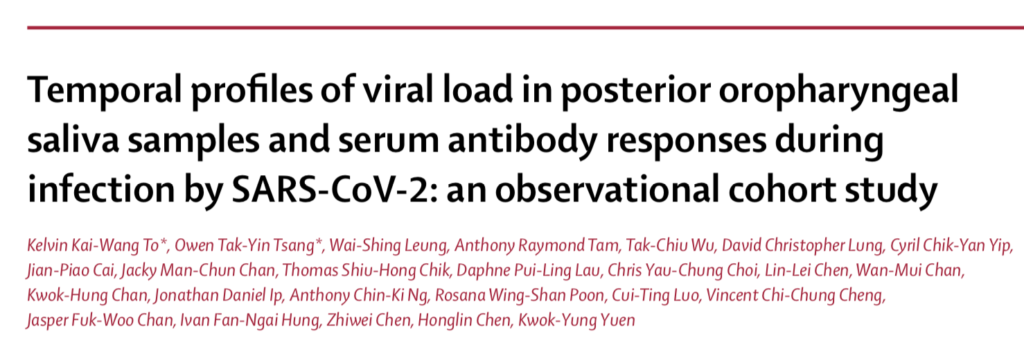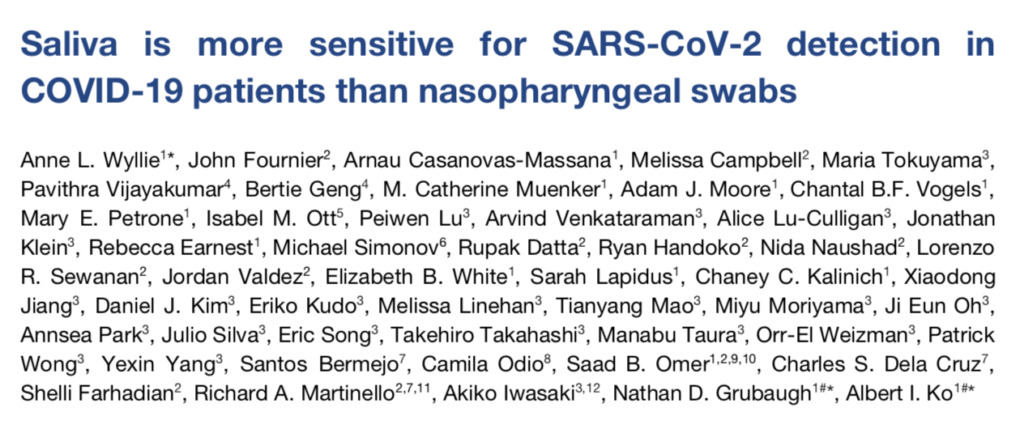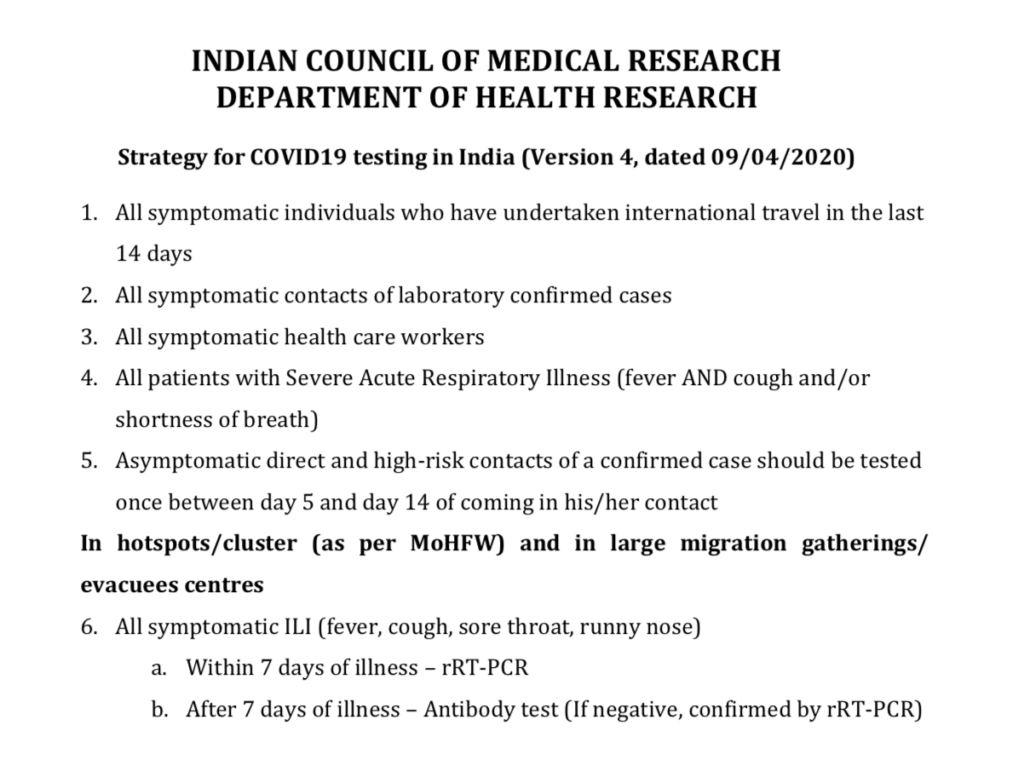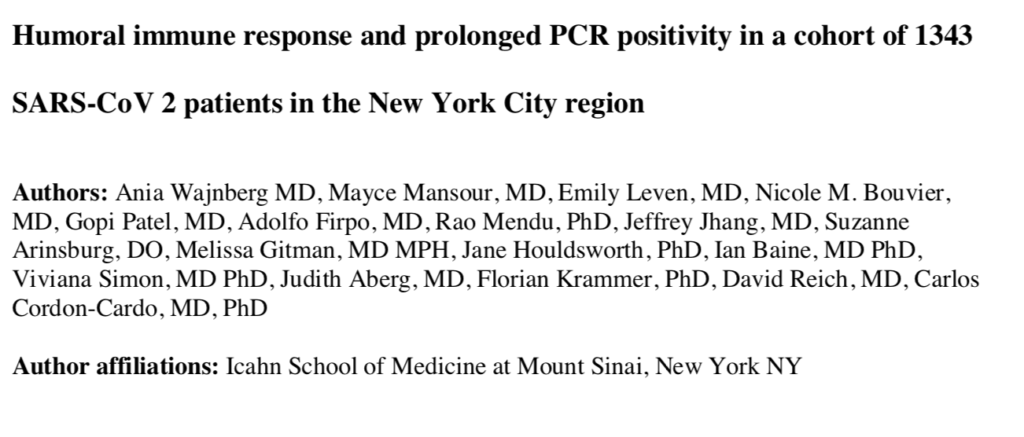
Published Online
March 23, 2020
Every now and then a statement is thrown at us on television or the print media that warns us of the unknowns around Covid-19 disease. The WHO had gone to a great extent in highlighting the immunity conundrum regarding Covid-19, only to retract a few days later. This was a clear example of attempts being made to obfuscate at the highest levels. As per the WHO there was no clarity on the extent of antibody production post Covid-19 infection, they did not know the extent of nobodies produced, the ability of the antibodies to prevent further infection or how long these antibodies would persist in the body. They probably initially wondered whether antibodies were produced at all. This was an odd opinion, because just about every viral infection triggers an antibody response. We know that SARS (that burnt out in 2 years) produced antibodies for almost 3 years. MERS ( still present sporadically ) also manufactures antibodies for almost 3 years. Both are coronaviruses, in fact the Covid-19 virus resembles SARS-CoV-1 so much it is named SARS-CoV-2 after it.
There is already considerable data that both monkeys and humans make antibodies when infected with SARS-CoV-2. Measles and mumps provide antibodies for a life time, while tetanus kicks in antibodies for 11 years. Antibodies after typhoid can also last a lifetime. Now one more study posted online, echoes the fact that patients with Covid-19 do make antibodies, and do so vigorously. The paper,yet to be peer reviewed, includes more than 1300 patients of Covid-19. The strength of his paper is that the kit to detect antibodies was extremely efficient with a specificity of 99%. This means there is less 1% chance of a false positive result. The study provides very reassuring results. Even though the patients had mild symptoms , 99% developed antibodies. All patients were confirmed to be infected by SARS-CoV-2 by PCR testing. It had been assumed that people with moderate or severe infection are the one capable of manufacturing antibodies. This study from New York however reports that even mildly infected patients are capable of a robust immune response. Levels were highest 3 weeks after onset of illness. There was even a difference in antibody levels from day 20 versus day 24. Antibodies were produced regardless of sex, age or duration of illness.
Another interesting finding of the study is that PCR test for SARS-CoV-2 can be positive upto 28 days after onset of infection. Crucially however this does to mean that the virus is infected. Other studies have documented that this virus can only be cultured upto 8 days, indicating that after 8-10 days the PCR test is detecting non infectious genetic material. Genetic fragments of Ebola and Zika viruses are known to persist for more than 6 months.
It is clear that everyone who makes antibodies to SARS-CoV-2 has some level of immunity to it. Even if the levels decline a previously person will retain some protection from the virus. The Germans were well aware of the robustness of antibody response in Covid-19. They did not permit themselves to be confused by the WHO advisory at any point of time. They raced ahead with making as many antibody kits as possible, much before the rest of the Western world. They already have data that as many as 14% of Germans have antibodies to Covid-19 in some districts.
Munich has launched an ambitious project to check antibodies around the year in 3000 citizens. The aim is to figure how many people, even those without any symptoms, have already been infected by the virus. German leaders realise that understanding the prevalence of infection will help them make policy decisions regarding loosening restrictions. Germany was testing 120000 people a day for the virus one month ago, it is probably testing more now. Germany announced last week that a deal has been stuck with a supplier for 50 lakh antibody tests every month. Please note the number…..50 lakh or 5 million serological tests a month. More than one lakh antibody test a day ! The presence of antibody would enable a person to go about her or his work more freely.
I have been repeating ad nauseam that extensive anti body testing must be done in India. This should have begun months ago because Covid-19 has been around since December 2019. Five months have elapsed and despite China being a neighbouring country we are still to even pretend to begin antibody testing. Very worrisome to say the least. The people advising the government have either blanked out completely or the government is does not seek advise, the latter is unlikely.

It is imperative that as many health workers as possible are tested for antibodies so that may work with confidence. I have done a primary PTCA just yesterday in a 75 year old gentleman presenting with an acute heart attack. We still await his virus report. Waiting for a PCR test could have imperilled the patients life, so we went ahead with a successful procedure. But throughout the procedure I worried for the technician and nurse woking alongside me during the life saving procedure. And of course there was a tinge of concern for my own self. I am quite fit but would hate to be infected by this virus. Remarkably, after 5 months of Covid-19 originating from neighbouring China we are still not in a position to health workers. If I have antibodies, I know I have been infected in the past. I also become aware that I have some level of immunity. I become incapable of infecting others or getting infected myself. I could even shake hands without fear.
It could also be quite probable that no one has told the leaders that one of the best ways to loosen the lockdown is to have an idea of how many have been infected by the virus in the past. Antibody testing is the best method to understand the penetration of this virus in the community. Most nations are striving to check for antibodies to making policy decisions.

The ICMR however remains quite baffled. What else can explain its advice that antibodies be checked after one week in a person connected with a cluster (9/4/20)Even a third year medical student knows that antibodies take a fortnight to kick in. The New York study that I have cited recommends that antibodies be checked 3 weeks after symptom onset. The ambiguity among our health advisers is both perplexing and even unnerving. In the event the government lays down policy of serological testing in health workers, I am sure it will be magnanimous enough to do them free
Astonishingly the ICMR (27/4/20) still “advocates that RT-PCR throat/nasal swab is the best use for diagnosis of Covid-19”. Bewildering because there is considerable data that saliva is a better source for virus detection and much safer for the health worker
